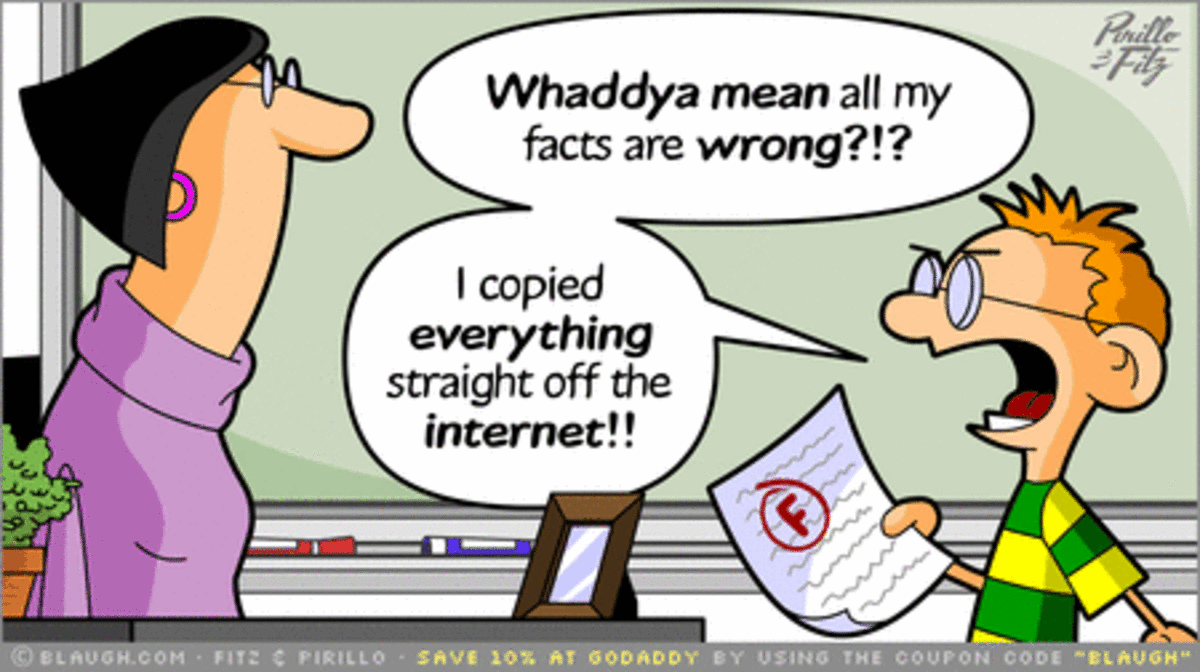Do You Have Integrity as an Author?
Before beginning this article it is important to recognize the fact that an author and writer are recognized journalists. The difference between an author and a writer is an author writes books and a writer generates articles. Journalists encompass both terms in addition to broadcasting news events on various media outlets. Whether you are an author, writer or journalist having integrity is an important if not critical trait to exhibit. Part of being a journalist also involves the reporting of the news and integrity principles are important in this category as well.
The responsibilities as an author or journalist are important not only to their success but also their reputation. We as authors and journalist must understand the necessary commitment to writing the truth when it comes to factual information. Often we write about issues and provide our perspective but in so doing we must clearly state that it is our perspective. It is good practice when writing on issues that both sides be presented for a fair analysis. This does not always take place in news reports but it should. As citizens we rely on the information being provided to us through various media outlets. News reporting can involve us as authors/writers when we address issues vital to our country and in so doing we must be as factual as we can possibly be in the content we provide.
Authors want to be successful and have a good reputation in relation to what they write and it is therefore important that we instill in our writing integrity principles. We must be honest, accurate, and complete, present all the facts, and identify the issues from both sides for a balanced approach in relation to hot issues of the day. This not only benefits us as writers but it benefits those who read what we write. This type of writing not only involves articles or blogs but non-fiction books that we may initiate. There are those who write that while the information may be accurate it may not be complete. Leaving out information which has a bearing on the opinion readers may form is not only wrong but it lacks integrity.
Before addressing other issues regarding other integrity principles/responsibilities as an author it is important that I state that there are many who present the information in a credible format for the readers to decide. Those that approach their writing in this manner not only provide good information but it adds to the positive reputation they generate from what they write or report.
The importance of integrity as an author, writer or journalist to encompass all the various terms associated with writing cannot be understated. We as authors must establish the boundaries which we will not violate in the content we write. The boundaries should be such that it is honest, complete and present the issues in a way that is balanced which basically encompasses the characteristics of integrity. Balance in our writing when it comes to issues that are hot topics is not only necessary but important to allow readers to form their own opinions. We as authors should not write to impose our opinion on others. This is something that some individuals have as an objective.
In terms of writing articles it is important to not take credit for something someone else has done. Taking credit for data as your own will more than likely be known and in so doing you will damage your reputation. Granted it is sometimes difficult if not impossible to identify the original source of information as there are multiple sources which can be found for specific information/comments by searching the Internet. At the least you as an author or writer should identify that the information came from multiple sources. Once this is accomplished you can provide your own perspective whether you agree or not on the position identified.
Respecting the copyrights of information being used is also an important trait of having integrity as an author. In terms of copyright it is important to note that ideas cannot be copyrighted and as such we are allowed to write on any ideas we wish as individuals do not have sole ownership. Many individuals who write books and articles often use material taken from various sources. It is important to properly recognize those sources and where required and to obtain permission to use the information. Some sources allow a certain amount of material to be used and in these cases the author must make sure that these limits are not exceeded. Other sources are considered to be in the public domain and as such the information is free to use but we should not use the information verbatim in our writing. However, there may be limitations in public domain information and if such limitations exist we must take care to not violate these limitations.
We can also generate an article, book or blog on any topic as long as we do not take information previously written and change the wording. This type of action would typically be considered plagiarism. In addition avoiding plagiarism is also critical to the success of an author. We must always respect the word of other authors as we would like our work respected. Plagiarism is an unacceptable condition but when someone makes a claim about plagiarism the proof must be provided.
This term plagiarism is not well understood in some circles but as writers we must understand what is involved. Creating material which is considered to be plagiarism and publishing it will damage our reputation and others may not want to contract with us for any publishing activities. We may even be barred from publishing articles on various sites now available if we violate this concept. While it may not be illegal it is morally wrong and we should take care not to violate this concept in our writing.
In summary when a writer/author uses any information it must be a matter of principle to obtain written permission from another individual, organization or web site. Getting permission to use information can be critical to the success of a book especially. In some cases information I have used required that I sign a contract signifying how the material was going to be used. In this respect I took great care in contacting an organization to get the permission as I was going to use the information exactly as it was on their website. We also should not rewrite articles and pass on the information as our own. We are allowed to make comments on the information and/or conclusions on the information previously written. It is important in making comments that we do not make statements that are either untrue or have not been verified for accuracy and completeness. The writing profession is an integral part of society and offers those who are involved with it the opportunity to connect with others. Instilling integrity principles in all we do makes a statement about our character and the respect we have for other writer’s information. Those who write and do not exhibit the principles of integrity can find that their career and their reputation will be damaged in a way that it is difficult if not impossible to overcome.






